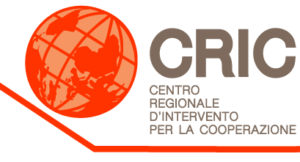Sustainable Agriculture, Dignified Work, and Heritage Recovery for the Resilience of Communities in the West Bank – AID 012590/07/3
The Palestinian people and their land are under occupation. The fragmentation of the Palestinian Territories into separate and non-communicating areas, the state of siege and isolation in which the population of the Gaza Strip lives, and Israel’s construction of the separation wall are some of the causes that exacerbate a situation that becomes more critical every day. The population’s survival and food sovereignty are daily undermined by actions such as land and water resource confiscation, tree uprooting, roadblocks and curfews, and restrictions on access to agricultural land and natural resources. An occupation that extends day by day; in the West Bank, the population has gradually lost access to 40 percent of land, 82 percent of water resources and 66 percent of pastures, due to expropriations for the construction of illegal Israeli settlements by Israeli settlers.
But land, more than ever in Palestine, is inextricably linked to culture. Along with the right of free access to and use of land, it is necessary to preserve and hand over to new generations their own cultural heritage, engaging in the defense, rediscovery and enhancement of historical sites, now covered by the dust of abandonment and war. It is the redemption of a history that daily suffers the violence of erasure and annihilation. Every day, in addition to houses, ancient relics are razed, and every day 1,400 years of history, of Arab-Islamic culture are denied and artfully recreated to rewrite the history of the conqueror and legitimize the violence of the present. Ancient olive trees are uprooted and replanted in a foreign elsewhere. To this strategy the Palestinian people resist. And it is this resistance that inspires our work.
THE PROJECT
Building on the experience developed in previous projects in the Hebron area, most recently “Sumud in free land,” Li-Biladina aims to improve the living conditions of rural communities in the West Bank, specifically in Sa’ir and Al Burj (Hebron), Taybeh (Ramallah), and neighboring smaller rural municipalities.
This intervention is intended to support the development of a virtuous economic circuit that will reverse the process of progressive economic and cultural impoverishment of the communities. The Israeli occupation and other forces are responsible for the increase of a generalized vulnerability that pushes towards the abandonment and the consequent degradation of the territories which, in turn, favor the confiscation by Israel. The current processes are reducing resilience to climate change, increasing food shortages and dependence on Israel itself for natural resources such as water.
The project intends to trigger a change in the productive and sustainable use of natural resources (land, water) by reducing environmental impacts, mitigating the effects of climate change, preserving the landscape and the biodiversity, and on the other hand improving the capacities of local communities by strengthening technical-productive skills and creating added value along the food supply chains and tourist activities. To this end, the activation of an integrated landscape management path, which improves agro-food production and supports the recovery and enjoyment of touristic areas, with all the valuable elements that represent the history and rural traditions of these territories, will allow to start community economic mechanisms. It is intended to succeed in improving the ability of households to generate income in a sustainable way, reducing vulnerability to climate change and food crises and affirming the right to endogenous development.
The agricultural intervention is led by by the Land Research Center which is supporting participant mobilization actions for land improvement with soil conservation works and planting of native orchards and seeds,, the installation of irrigation systems and the reinforcement of farmers’ skills; the restoration of the historic buildings is coordinated by the Mosaic Center which will be also in charge of the excavation and restoration campaigns of the Al Burj Citadel and cave houses and work in the Taybeh historic center with the training of young workers. At the same time, action will be taken to improve local crafts related to historical heritage and young people will be trained to offer touristic services related to the enjoyment of the renovated historical areas. AVSI Foundation is in charge of the monitoring system and supports with its experience the activities of valorization and marketing of typical products of the areas in order to place them on the local and/or tourist market. BASR will be responsible for all the aspects of the socio-economic inclusion of people with disabilities, both for their stable integration into the social context and in the search for a decent job to achieve autonomy.

